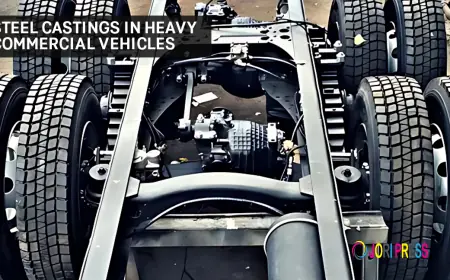Can Delaying Raise Your Tooth Extraction Cost?
Tooth extraction is often the last resort when other interventions fail. It may begin with mild discomfort, but delaying a necessary extraction can lead to increased complications, both in treatment and in cost.

Tooth extraction is often the last resort when other interventions fail. It may begin with mild discomfort, but delaying a necessary extraction can lead to increased complications, both in treatment and in cost. What starts as a manageable procedure can evolve into something far more complex simply due to inaction. Many people overlook how postponing an
How Delays Affect the Tooth’s Condition
When a tooth is damaged, decayed, or infected, immediate attention prevents the situation from worsening. However, delaying action can lead to increased structural damage. Over time, the tooth may fracture, the gum may become inflamed, or infection can spread to surrounding tissues. These changes can turn a relatively straightforward procedure into a more involved one, requiring additional steps before the extraction is even possible.
When extra care becomes necessary before the tooth can be removed, it may involve more specialized tools, longer sessions, and added support around the affected area. This escalation translates into a more extensive procedure and influences the overall treatment path.
The Impact of Delays on Extraction Complexity
Time alters the nature of any untreated dental problem. A simple extraction can turn into a surgical one if the tooth breaks, the root becomes impacted, or surrounding tissue is compromised. These changes affect the tools used, the time needed, and the preparation required. As complexity increases, so do the resources needed to safely complete the procedure.
Delays can also influence the number of steps involved. What might have been one session may expand into multiple visits, evaluations, and procedures. Each new layer adds more time and effort to the extraction process, impacting not only recovery but also preparation before removal.
Additional Evaluations May Be Required
When an extraction is postponed, the need for extra diagnostics often arises. Imaging or scans may become necessary to evaluate surrounding bone, tissue integrity, or the progression of damage. These evaluations help determine the safest method for removal, especially when complications develop from waiting too long.
Each new assessment brings with it additional professional steps, requiring expertise to interpret and incorporate findings into the treatment plan. This adds to the overall structure of the procedure and stretches the timeline before the extraction even takes place.
How Infection Plays a Role
One of the most overlooked aspects of delaying an extraction is the risk of infection. A decaying or broken tooth can become a breeding ground for bacteria. Left untreated, this can result in swelling, gum recession, or even abscesses. When infection is present, an extraction may need to be postponed until the area is stabilized, which creates further delays.
This added step introduces a whole new phase to the process—managing the infection before the tooth can be safely removed. These developments not only delay treatment but may contribute to additional costs related to preparation.
Emotional Stress Adds to the Delay
Delays are often caused by fear, anxiety, or uncertainty about the procedure. While these concerns are valid, avoiding the situation tends to intensify both the physical discomfort and the psychological toll. Living with chronic pain, sleep disruption, or social discomfort due to visible tooth damage can impact a person's well-being.
Beyond physical health, emotional hesitation creates avoidance cycles. The longer someone waits, the harder it becomes to commit to the procedure. This leads to increased urgency later, often at a time when the tooth's condition is significantly worse than before.
Long-Term Consequences of Waiting
Choosing to delay extraction also impacts the surrounding teeth and gum line. When one damaged tooth is ignored, the pressure on nearby teeth increases. They may shift, become misaligned, or face new vulnerabilities due to imbalance. These indirect effects result in added procedures, such as alignment correction or protective treatments.
In some cases, delays contribute to long-term deterioration of the jaw structure in the affected area. Once structural shifts occur, the damage extends far beyond the original tooth, creating a ripple effect that expands the overall complexity of treatment.
Financial Planning Becomes Unpredictable
Prolonging a procedure like tooth extraction makes financial planning more difficult. Initially, the person may anticipate a simple process, but over time, added requirements change that expectation. If the extraction must now be performed in multiple steps, it becomes harder to manage timing, resources, and expectations.
Individuals often begin seeking estimates too late, at a time when urgent intervention is already needed. This reduces the time available for asking questions, evaluating options, or identifying support programs. A once-manageable situation becomes reactive and rushed.
Avoiding Emergency Situations
Emergencies rarely occur without warning. They are often the result of something that has been overlooked or avoided. A tooth that could have been removed calmly now presents with swelling, bleeding, or unmanageable pain. At that point, the person has limited control over scheduling and must respond urgently.
This loss of flexibility places the individual in a situation where choice is limited. When timing and control are no longer available, procedures often happen under less favorable conditions. The absence of planning results in reduced clarity about the process and higher uncertainty about final outcomes.
The Role of Informed Decisions
Informed decision-making reduces the likelihood of complications. Acting on early signs allows people to prepare thoughtfully—asking questions, understanding the approach, and considering support options. This preparedness becomes harder to achieve when decisions are made under pressure due to worsening symptoms.
Those who act early often report smoother experiences, shorter procedure times, and better emotional outcomes. Delays remove that sense of preparedness and increase the likelihood of unpredictability, which ultimately influences the entire experience.
What You Should Remember
Choosing when to proceed with a tooth extraction is a personal decision. However, understanding how delays can influence the process—from procedure complexity to emotional stress—is essential. Waiting not only increases physical discomfort but also complicates preparation, time, and planning.
Whether or not insurance is involved, postponing a necessary extraction rarely leads to a simpler outcome. On the contrary, the longer the delay, the more elaborate the solution becomes. Acting early helps avoid unnecessary complications and places the person in control of their oral health journey.
This applies across many regions, including for those researching Tooth extraction cost in Dubai where procedure complexity and urgency can influence financial and logistical considerations. While the extraction itself may appear routine, what surrounds it changes dramatically based on how long someone waits.
Ultimately, anyone considering this procedure must weigh the potential impact of delay. Whether planning for a simple case or a more complex removal, making timely decisions improves outcomes and helps avoid a sudden escalation in both complexity and responsibility. Understanding this is especially helpful when evaluating Tooth Extraction Cost in Dubai, where access and scheduling may vary based on the situation’s urgency.
What's Your Reaction?
 Like
0
Like
0
 Dislike
0
Dislike
0
 Love
0
Love
0
 Funny
0
Funny
0
 Angry
0
Angry
0
 Sad
0
Sad
0
 Wow
0
Wow
0





















































